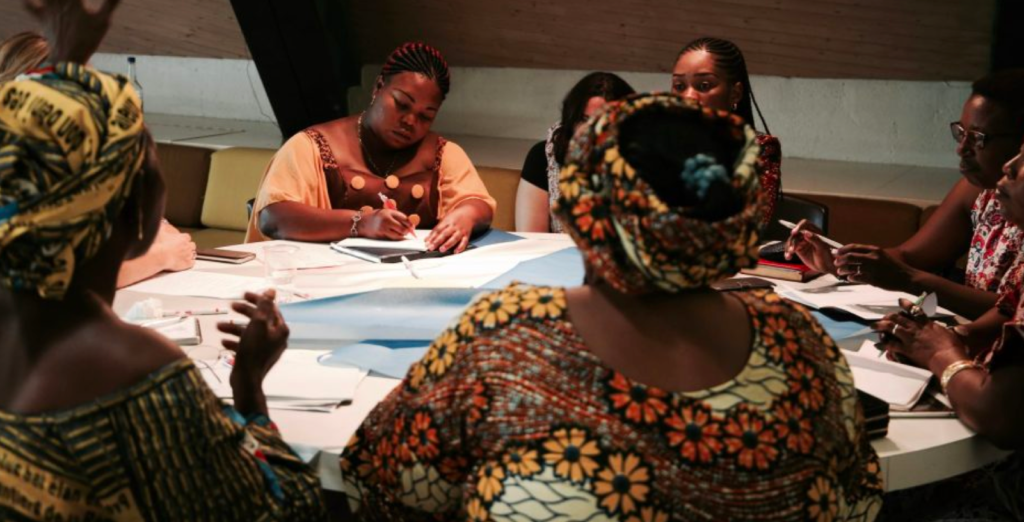

2017 - Initiation of the SEMA Network - Geneva
The Story of SEMA
SEMA was created in June 2017 in Geneva, Switzerland, at the first global retreat of survivors of conflict-related sexual violence. In this meeting, representatives from 14 countries agreed on the need for a global network of survivors to facilitate knowledge exchange, promote solidarity and advocate for real change and the promotion of survivors’ rights.
With the generous support of the Dutch Postcode Lottery, this was followed by global retreats in 2018 (the Netherlands) and 2019 (Luxembourg). Due to the global Covid-19 pandemic and the consequent travel restrictions, SEMA members did not meet in person for three years although they had regular contact on digital platforms and webinars. In 2022, the Mukwege Foundation organised the 4th global retreat in which SEMA members celebrated the 5th year anniversary of SEMA.
SEMA’s highlights in the past 5 years
- SEMA members have spoken at the UN Commission on the Status of Women (CSW) in New York, the Human Rights Council and the UN General Assembly where they advocated for justice, holistic care and their inclusion in decision-making.
- SEMA has contributed to the Murad Code, a global code of conduct for documenters.
- In the past two years, SEMA members have been participating in the UN Women’s Female Military Officers Course. In these sessions, SEMA members speak openly to female peacekeepers about the causes and consequences of CRSV and, together, they discuss about possible solutions and synergies.
- SEMA members have participated in in-country learning exchanges with survivors in Bosnia, Colombia, Iraq, Kosovo, South Sudan, Uganda and Ukraine.
- Survivors participated in the launch of the Global Survivors Fund, the reparations initiative spearheaded by Dr. Mukwege and Nadia Murad, showcased during a United Nations event to mark the 10th anniversary of the UN Mandate on Sexual Violence in New York City, where survivors gave compelling testimony about their realities and the pressing need for survivor-centred approaches to change.
- With Make Music Matter, survivors wrote and recorded the song ‘Little Bird’. They have performed it live at public events in Geneva and The Hague, and with the Luxembourg Philharmonic Orchestra. In 2022, SEMA members recorded and launched a new song ‘Solidarity’. This song was created in collaboration with the singer and survivor Ambassador, Marie Daulne (also known as Zap Mama).
- SEMA members presented the key recommendations of a joint report submitted to the Universal Periodical Review of DRC to the Human Rights Council in Geneva. The report highlights the need to fight impunity, to address the lack of access to reparations and holistic care, and the urgent need to implement prevention and a proper strategy to achieve equality between women and men in DRC.
- In 2022, SEMA members collaborated with the documentary photographer, Rachel Corner, to create a series of photo portraits and testimonies of their personal journeys as activists and change-makers. The resulting portraits were curated by the survivors and were compiled into a book – Breaking the Silence: turning pain into power – and a photo exhibition. The exhibition was launched at the PSVI Conference and visited by 800+ conference delegates, including representatives from 57 countries, survivors of CRSV and civil society. The exhibition has also been shown in The Hague.
- In November 2022, 22 SEMA members attended and 13 spoke in panels at the Prevention of Sexual Violence Initiative (PSVI) Conference hosted by the UK Foreign, Commonwealth and Development Office in London. SEMA members also launched their Call to Action, which outlines 13 key action points to create a world free of CRSV, primarily in the areas of prevention, response, justice and accountability, and reparations.
